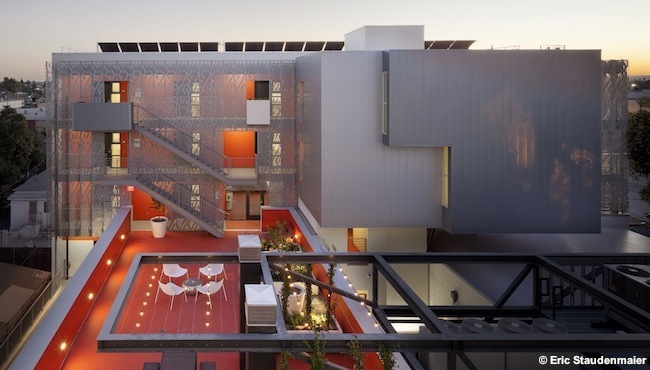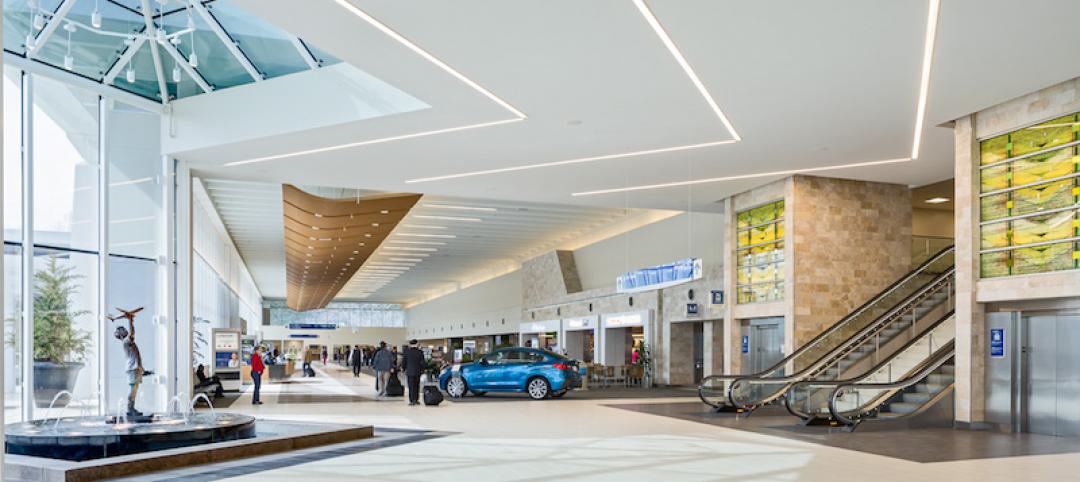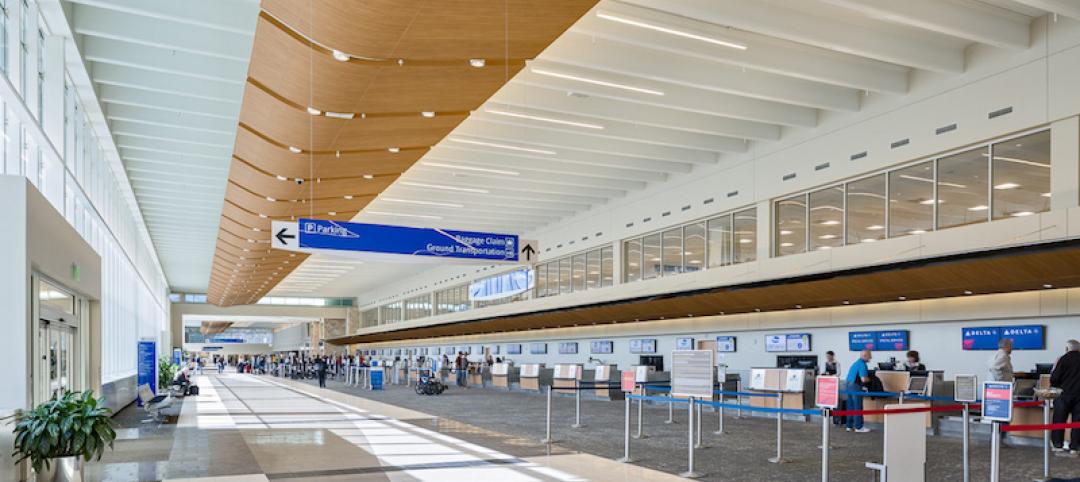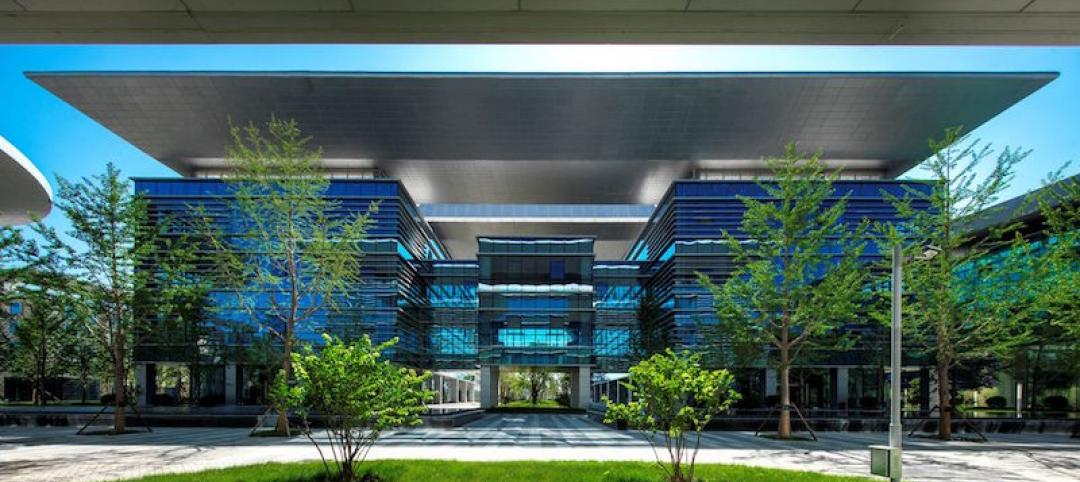The American Institute of Architects’ (AIA) Housing and Custom Residential Knowledge Community, in conjunction with the Office of the Secretary of the U.S. Department of Housing and Urban Development (HUD), recognized four recipients of the 2014 AIA/HUD Secretary Awards.
The categories of the program include Excellence in Affordable Housing Design, Creating Community Connection Award, Community-Informed Design Award and Housing Accessibility - Alan J. Rothman Award. These awards demonstrate that design matters, and the recipient projects offer examples of important developments in the housing industry.
“This year’s recipients are shining examples of how the latest innovations in design, materials and building techniques are not just for high-end housing but can also offer lower income families exceptional homes they can actually afford,” said HUD Secretary Shaun Donovan.
The jury for the 2014 AIA/HUD Secretary Awards included Nancy Ludwig, FAIA, (Chair), ICON architecture, inc.; David Barista, Building Design+Construction; Louise Braverman, FAIA, Louise Braverman Architect; Keith Fudge, U.S. Department of Housing and Urban Development; Paul Joice; U.S. Department of Housing and Urban Development and Jean Rehkeamp Larson, AIA, Rehkamp Larson Architects, Inc.
Category One: Excellence in Affordable Housing Design Award
28th Street Apartments, Los Angeles
Koning Eizenberg Architects
This project restored a 1926 YMCA building, designed by noted African American architect Paul R. Williams and listed on the National Register of Historic Places, and added a new five-story building at the rear of the existing structure.
The original building and addition house two nonprofit organizations; one offers neighborhood youth training and employment programs and the other provides 49 units of affordable housing for youth leaving foster care, the mentally ill, and the chronically homeless.
Support services are offered on-site, and residents have access to a roof garden, laundry, and lounge.
Category Two: Creating Community Connection Award
Kelly Cullen Community, San Francisco
Gelfand Partners Architects; Knapp Architects
San Francisco’s historic Central YMCA (1909), a nine-story Classical building located in the city’s Tenderloin neighborhood, has been transformed into supportive housing for the homeless and a health center for residents of supportive housing and the homeless.
The adaptive use project created 174 micro-units of permanent housing and preserved the original sky-lit second-floor lobby, auditorium, full-size gymnasium, offices, and meeting rooms.
A new radiant heating system, energy efficient lighting and ventilation, and the use of healthy materials support sustainability and resident well-being.
Category Three: Community-Informed Design Award
Kings Beach Housing Now, Kings Beach, Calif.
Domus Development; YHLA Architects
This project provides affordable workforce housing for low-income workers and families who previously lived in dilapidated, substandard housing in the Lake Tahoe Basin.
Consisting of nine buildings located on five scattered sites, Kings Beach Housing Now provides 77 LEED Silver apartments that reduce negative impacts on the environment, reuse infill land, and preserve Lake Tahoe’s beautiful open spaces. In addition, an advanced biofiltration system naturally filters 100% of on-site storm water, which prevents sediments and pollutants from negatively impacting the lake.
Category Four: Housing Accessibility | Alan J. Rothman Award
Sierra Bonita Housing, West Hollywood, Calif.
Patrick Tighe Architecture
The design challenge of this project, the first all-affordable mixed-use development in West Hollywood and the first designed and completed according to the city’s new Green Building Ordinance, was to fit the desired 42 accessible units on a 13,000-sf site and within a 50-foot height limit.
The design used minimal exterior setbacks and reversed the typical unit layout, locating the bedrooms along the interior building courtyard and the living areas on the street side, to capitalize on views and natural light.
Passive solar strategies generate power for all of the building’s common areas, and a second system of rooftop solar panels provides hot water for the entire building.
Related Stories
Giants 400 | Oct 4, 2017
Top 40 airport construction firms
Hensel Phelps, Turner Construction Co., and Skanska USA top BD+C’s ranking of the nation’s largest airport sector contractors and construction management firms, as reported in the 2017 Giants 300 Report.
Giants 400 | Oct 3, 2017
Top 30 airport architecture firms
Jacobs, Corgan, and Gensler top BD+C’s ranking of the nation’s largest airport sector architecture and AE firms, as reported in the 2017 Giants 300 Report.
Multifamily Housing | Sep 27, 2017
Pickleball, anyone?
Two-and-a-half million Americans are playing the game with the funny name.
Architects | Sep 25, 2017
Blending past, present, and future at a research center
The four-part mission of a garden of scientific research helped drive the design for the Beijing New Material Research & Development Center.
Architects | Sep 22, 2017
Design giants merge: FKP joins CannonDesign
The deal strengthens CannonDesign’s pediatric healthcare expertise, establishes presence in Texas and Ohio.
40 Under 40 | Sep 22, 2017
Meet the 40 Under 40 Class of 2017
These AEC stars are making their mark in business, philanthropy, and in their communities.
40 Under 40 | Sep 21, 2017
Meet the 40 Under 40 Class of 2017
These AEC stars are making their mark in business, philanthropy, and in their communities.
Office Buildings | Sep 20, 2017
Five Stantec offices move into one Fifth Avenue location
The new location provides the firm with 40,000 sf of space.
Architects | Sep 19, 2017
What we talk about when we talk about placemaking
What does Good Growth mean and how do we set about achieving it?
Architects | Sep 13, 2017
Leo A Daly hires hospitality-design veteran to lead its Dallas office
Ken Martin views this sector as an incubator of innovation.



































